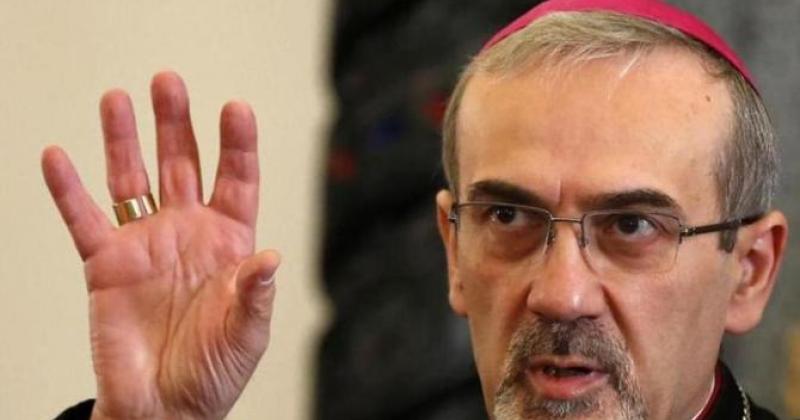Archbishop Pizzaballa on the White House’s new approach: “Riyadh may play a decisive role in the conflict between Arab countries and Israel”
Understanding that dialogue between religions is a key part of the Middle Eastern mosaic “is an important and positive step.” Archbishop Pierbattista Pizzaballa, apostolic administrator of the Latin Patriarchate of Jerusalem, comments with the Press US President’s speech at Riyadh.
Trump has resumed the dialogue between Muslims, Jews and Christians to solve the dramatic situation in the Middle East. What is you opinion?
“The fact that politics have understood that interreligious dialogue is an important part of the Middle Eastern mosaic is an important and positive step. In the past, the religious element was set aside as considered a reason for division. In some measure, unfortunately, it is true, but that is why it is important to include the religious context, although this makes everything more difficult.”
Are there any concrete possibilities?
“We must avoid reducing the interreligious dialogue to declarations-slogans on peace, which are detached from real life. Unfortunately, it often ends like this. Further, it is necessary for all religious leaders to question their responsibility in creating a mentality of mutual respect. In this context, the alliance with the Muslim Arab nations against terrorism cannot fail to deal with their specific responsibilities in actually doing something, in asking themselves how and where the fundamentalism that is polluting those nations was born. If interreligious dialogue does not inquire the real lives of their faithful and their concrete problems, it turns into a mere slogan, which is not needed and ultimately becomes irritating.”
With his trip to Saudi Arabia, Trump has found within that Sunni world the most suitable interlocutor for this dialogue. What are the reasons for this choice?
“The Sunni world establishes almost 80 per cent of the Muslim world. It is clear that if you want to talk to Muslims, you must start from there. Saudi Arabia, as it is known, has an extraordinary influence in the Sunni world, both because the major Holy sites are in its territory, and because it has enormous economic influence on all Middle Eastern countries. However, I believe that the reason for the first visit to that country is mainly due to the historical and economic ties that the US has with Arabia, along with the desire, I believe, to redefine US administration’ policy in the Middle East.”
Could Saudis play a role in solving the Israeli-Palestinian conflict and in the long-standing issue of Jerusalem?
“I hope so. Given their strong influence in the Arab world, the Saudis could play an important role in the peace-process between the Arab countries and Israel. The settlement of the Israeli-Palestinian conflict, in fact, does not end within the narrow boundaries of the two countries, but requires a broader approach; just think about the Palestinian refugees issue among others. At the same time, however, this remains blocked unless they are found together with concrete solutions between Israelis and Palestinians, which, presently I do not seem to see at the horizon. I hope I am wrong.”
Is it the first that an American president visits Christian Holy sites?
“In the past Bush visited Capernaum, Obama the Bethlehem Basilica and now Trump the Holy Sepulcher. That a president visits a Holy Place is not something new. It was generally preferred to avoid the Holy Sepulcher for political complications. His determination to go anyway is positive. We will see how it evolves in the future.”
The Justice and Peace Commission of the Bishops of the Holy Land recalled, “The political situation in Israel and Palestine is far from being normal.” What is the meaning of this standpoint?
“I believe that the Commission wants to draw everybody’s attention to the issue of Jerusalem and not allow, not even subconsciously, the acceptance of the policy based on faits accomplis. As Christian Churches, however, we must work harder to speak of Christian Jerusalem and be capable of a discourse on the sense of our being here as Christians and in saying why terrestrial Jerusalem is still important to us and to our faith today. It is the challenge that awaits us in the coming years. “
What do you hope from the meeting between Trump and the Pope?
“I hope that statements and commitments to work together will come out and that they shall identify the priorities on which to work in the coming years.”
